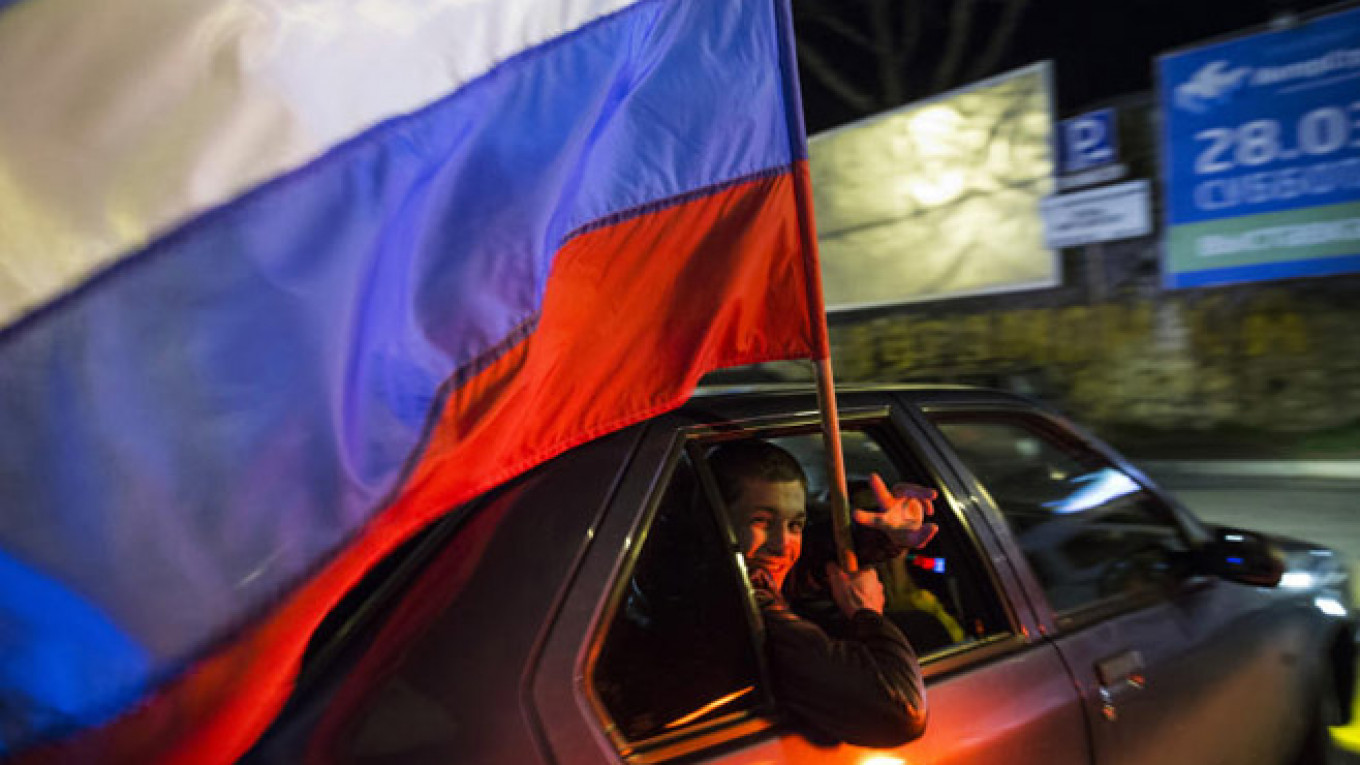Russia on Wednesday claimed 26th place in a global ranking of countries' ability to foster human capital thanks to its highly educated populace, putting it first among the BRICS group of developing nations.
Among BRICS members Russia led by a mile, according to the survey of 124 economies published Wednesday by the World Economic Forum, a Geneva-based nonprofit foundation. China came in 64th place and Brazil in 78th, with South Africa and India trailing behind at 92nd and 100th place, respectively.
Accessible education is only the first step in developing a population's skills, however, and poor scores in quality of education, professional training and other categories signaled that Russia is still far from employing its people's potential to the fullest.
The World Economic Forum's Human Capital Report aims to reveal the degree to which countries are developing the talents of all their citizens, who were evaluated in five age groups ranging from 15 to 65.
The leaders in the rating should come as no surprise: Finland and its widely acclaimed education system led the pack, followed by its Nordic neighbor Norway, and Switzerland.
According to Alexei Prazdnichnykh, a consultant who coordinates the World Economic Forum's evaluation of the Russian economy, Russia's lead comes down to one towering factor.
"Russia's strong positions are largely related to the accessibility of the education system on all levels, from elementary school to higher education," Prazdnichnykh said in a statement.
Russia came first in the world for its rate of primary school completion, 10th for secondary education and 13th for post-secondary education.
This strong rate of early education gives Russia a big leg up. Unfortunately, the quality of that education was less impressive, with Russia's primary schools ranking 49th and the education system as a whole coming in 73rd in the ranking.
Historically strong thanks to the Soviet Union's emphasis on learning, Russia's education system has struggled over the past two decades due to underfunding and a string of structural overhauls.
Equally important for fostering human capital is the education that comes after university, such as training in the workplace and professional courses. Here, Russia falls flat, with staff training services ranked 79th in the world.
This lack of on-the-job training is one major reason why the human capital of older workers is not employed as well as that of younger ones, Vladimir Gimpelson, director of the Center for Labor Market Studies at Moscow's Higher School of Economics, told The Moscow Times.
Other sore points include poor health — Russians are only expected to live an average of 61 healthy years — as well as a lack of highly skilled labor and relatively low number of working-age citizens, the report found.
Beyond these questions of education and demographics lie an even larger issue: Demand for highly qualified workers is not growing as it should be.
"The economy is not creating enough jobs that require qualifications, education and developed human capital. If you compare job creation in Russia to the other BRICS countries, Russia is falling very far behind," Gimpelson said.
Contact the author at [email protected]
A Message from The Moscow Times:
Dear readers,
We are facing unprecedented challenges. Russia's Prosecutor General's Office has designated The Moscow Times as an "undesirable" organization, criminalizing our work and putting our staff at risk of prosecution. This follows our earlier unjust labeling as a "foreign agent."
These actions are direct attempts to silence independent journalism in Russia. The authorities claim our work "discredits the decisions of the Russian leadership." We see things differently: we strive to provide accurate, unbiased reporting on Russia.
We, the journalists of The Moscow Times, refuse to be silenced. But to continue our work, we need your help.
Your support, no matter how small, makes a world of difference. If you can, please support us monthly starting from just $2. It's quick to set up, and every contribution makes a significant impact.
By supporting The Moscow Times, you're defending open, independent journalism in the face of repression. Thank you for standing with us.
Remind me later.






